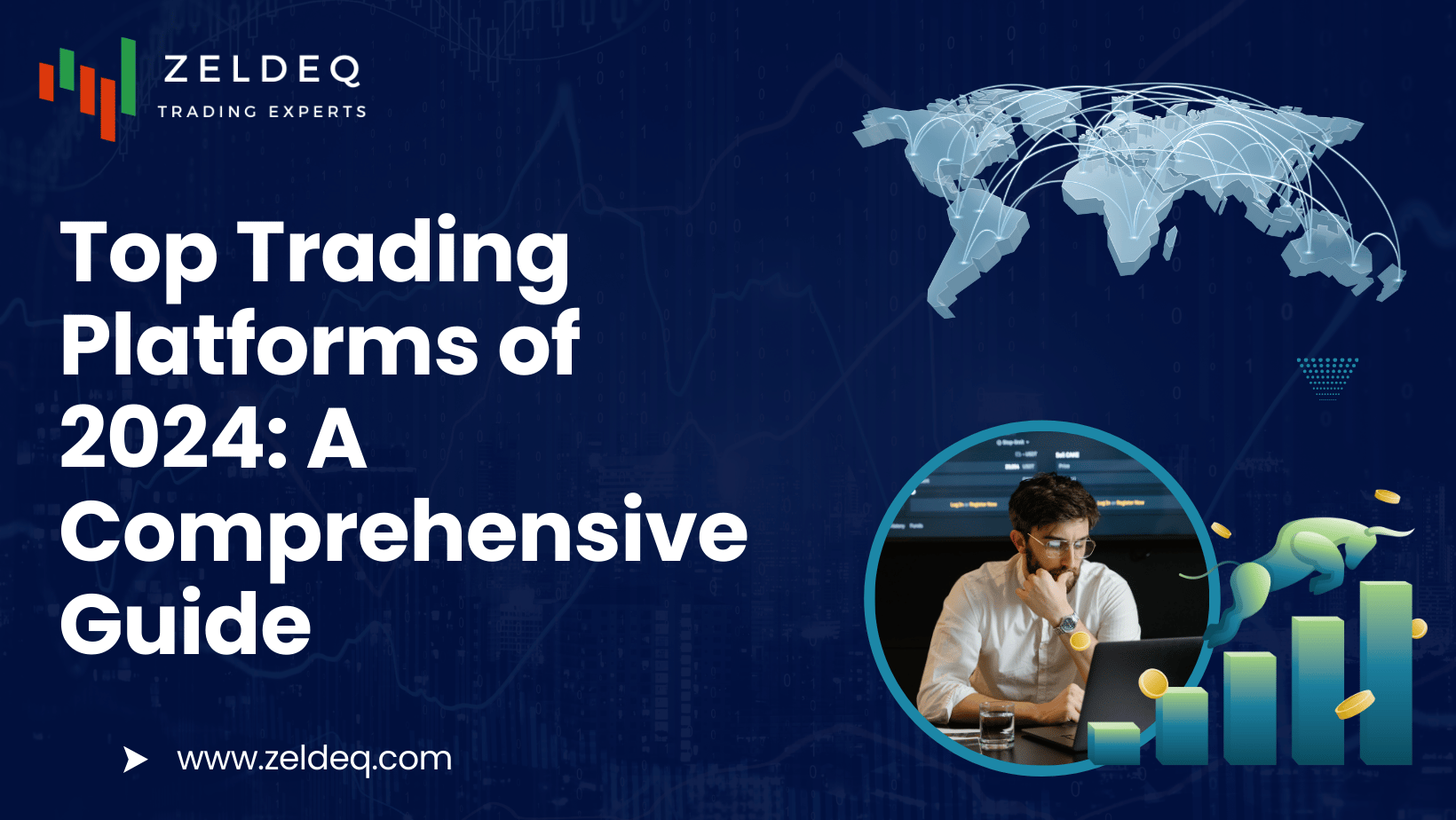Welcome to our comprehensive guide on the top online trading platforms for 2024! Whether you’re a seasoned trader or just starting your investment journey, choosing the right trading platform can significantly impact your trading experience. This guide will walk you through the top ten platforms, highlighting their features, pros and cons, and what makes them stand out. Let’s dive in!
Table of Contents
- What is an Online Trading Platform?
- Factors to Consider When Choosing a Trading Platform
- Top 10 Online Trading Platforms for 2024
- FAQs About Online Trading Platforms
- Conclusion
What is an Online Trading Platform?
An online trading platform is a software application that allows individuals to buy and sell financial securities through the internet. These platforms provide various tools to facilitate trading, including real-time market data, charting capabilities, and analysis tools. Most platforms are designed to be user-friendly and accessible to both novice and experienced traders.
Key Features of Online Trading Platforms:
- Market Access: Ability to trade stocks, bonds, ETFs, options, and more.
- Research Tools: Access to market analysis, news, and educational resources.
- User Interface: Intuitive design that caters to different trading styles.
- Mobile Compatibility: Availability of mobile apps for on-the-go trading.
Factors to Consider When Choosing a Trading Platform
Selecting the right trading platform involves considering several factors:
- Fees and Commissions: Look for platforms with competitive pricing structures, including commission-free trading options. For more information on trading costs, check out Essential Trading Costs and Fees Beginners Should Know.
Understanding the costs involved can save you money and help you maximize your investments.
- User Experience: A seamless and intuitive interface can make a significant difference in your trading efficiency.
- Investment Options: Ensure the platform offers a variety of investment vehicles that meet your trading goals.
For beginners, Understanding How Trading Works – A Beginners Guide can be a valuable resource.
- Research and Educational Resources: Platforms with robust research tools can help you make informed decisions.
- Customer Support: Access to reliable customer service can be crucial, especially for new traders.
Top 10 Online Trading Platforms for 2024
1. E*TRADE
E*TRADE is well-known for its comprehensive trading platform and robust research tools. It offers a user-friendly mobile app and extensive educational resources for beginners.
- Pros: Strong research tools, extensive educational resources, user-friendly interface.
- Cons: Higher fees for some services compared to competitors.
E*TRADE is ideal for traders looking for a well-rounded platform with plenty of support.
2. TD Ameritrade
TD Ameritrade is favored for its exceptional trading platform, thinkorswim, which offers advanced charting and analysis tools. It also provides a wealth of educational resources.
- Pros: Excellent trading tools, extensive research resources, no commissions on stock trades.
- Cons: Limited investment options for cryptocurrencies.
3. Robinhood
Robinhood revolutionized trading with its commission-free model. It’s particularly popular among younger investors due to its simple app and user-friendly design.
- Pros: Commission-free trading, easy-to-use interface, instant deposits.
- Cons: Limited research tools and investment options.
Robinhood is a great entry point for new investors looking to start trading with minimal fees.
4. Charles Schwab
Charles Schwab is a well-established brokerage offering a comprehensive range of services, including investment advice and retirement planning.
- Pros: No minimum to open an account, robust research tools, excellent customer service.
- Cons: Limited trading options for international stocks.
5. Interactive Brokers
Interactive Brokers caters to more experienced traders with its advanced trading tools and low-cost trading.
- Pros: Low margin rates, extensive global market access, professional-grade tools.
- Cons: Steeper learning curve for beginners.
6. Fidelity Investments
Fidelity is known for its customer service and extensive research options. It offers a wide variety of investment options.
- Pros: No commission on stock trades, excellent research tools, strong customer service.
- Cons: The platform may feel overwhelming for beginners.
Fidelity’s commitment to customer service sets it apart from many competitors.
7. Webull
Webull has gained popularity for its commission-free trading and advanced analytical tools, making it ideal for active traders.
- Pros: No commissions, advanced charting tools, community features.
- Cons: Limited educational resources compared to competitors.
8. SoFi Invest
SoFi Invest is perfect for beginner investors looking to dip their toes into the market. It offers a simple platform with no commissions.
- Pros: Easy to use, commission-free trading, access to financial planning tools.
- Cons: Fewer investment options compared to traditional brokers.
SoFi Invest is especially appealing for those just starting out in the world of investing.
9. TradeStation
TradeStation is designed for serious traders, offering powerful trading tools and a highly customizable platform.
- Pros: Advanced trading tools, customizable interface, extensive educational resources.
- Cons: Higher fees for less active traders.
10. Plus500
Plus500 specializes in contracts for difference (CFDs) trading, making it a favorite for those interested in forex and commodities.
- Pros: User-friendly platform, extensive range of CFDs, no commissions.
- Cons: Limited educational resources compared to traditional brokers.
Plus500 is a solid choice for traders interested in leveraged trading.
FAQs About Online Trading Platforms
1. What fees should I expect from online trading platforms?
Most online trading platforms offer commission-free trading for stocks and ETFs but may charge fees for options trading, mutual funds, or account maintenance. Always read the fee schedule before opening an account. For an overview of trading costs, refer to Essential Trading Costs and Fees Beginners Should Know.
2. Can I trade on my mobile device?
Yes, most modern trading platforms offer mobile apps that allow you to trade on the go, access market data, and manage your investments.
3. How do I choose the best platform for me?
Consider your investment goals, trading experience, and the features that matter most to you, such as research tools, mobile access, and customer support.
4. Are online trading platforms safe?
Reputable online trading platforms are regulated by financial authorities and implement security measures to protect your data. Always choose platforms with a strong reputation and positive reviews.
Safety is paramount when choosing an online trading platform, so do your research!
Conclusion
Choosing the right online trading platform is essential for your investment success. Each platform discussed in this guide has its strengths and weaknesses, catering to different types of traders. Take the time to evaluate your trading style, research the platforms, and select one that aligns with your goals. For more insights, check out Top 5 Trading Instruments Every Beginner Should Know and 10 Essential Steps to Start Trading Successfully in 2024.
Happy trading


